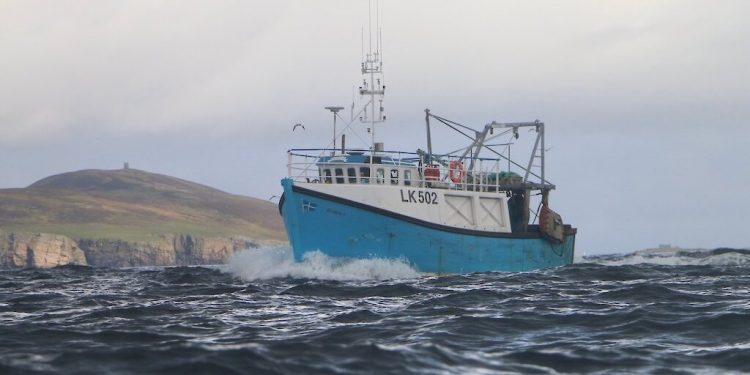Survey catches of cod in the inshore waters around Shetland last year were at their best for five years, according to scientists at UHI Shetland. Alongside the strong cod stock, the record squid catch rate observed in inshore waters in 2022 has been beaten.
These figures are drawn from the 2023 Shetland Inshore Fish Survey (SIFS), an independent survey of commercial species. Haddock was the main component of the survey catches, which are carried out in 52 pre-defined locations within 12 nautical miles of Shetland, including in 25 areas of shallow water that are assessed as potential nursery grounds.
Cod was shown to be at its highest level since 2018, with the highest catches to the west of the islands.
Squid was even more prominent in 2023 than it was in 2022, with an average catch rate of 13kg per towing hour in shallow grounds compared to almost 11kg per hour in 2022.
Environmental change is the most likely explanation for the phenomenon, given that squid are relatively short-lived and breed only once.
‘The catch rate for cod on inshore grounds was the highest since 2018, and the average squid catch rate on shallow grounds surpassed even the record levels recorded during the previous year,’ explained Dr Shaun Fraser, Senior Fisheries Scientist at UHI Shetland.
‘We know from related work that larger-scale international fisheries surveys are not sensitive to these inshore trends, and so results like these clearly demonstrate the value and utility of the Atlantia II for maintaining an independent local survey capability.’
This survey has been conducted every year since 2011 by UHI Shetland’s own research vessel, Atlantia II LK-502, aiming to provide independent information on the distribution, relative abundance and population structure of fish species in Shetland waters.
‘Given how important inshore waters are to the Shetland fisheries ecosystem, and how vital it is for the future of fishing that nursery grounds show healthy amounts and sizes of young fish, these are encouraging results, particularly for cod,’ commented Shetland Fishermen’s Association executive officer Daniel Lawson.
‘These results also indicate a growing opportunity for Shetland’s inshore fleet to diversify into a targeted squid fishery, but fishermen need support and surety from government in order to make this a feasible and efficient prospect. The survey work carried out by UHI Shetland, with the Atlantia II absolutely vital for carrying it out, is critical to our evidence-based approach to fisheries, which contrasts starkly with many environmental NGOs which rely on misplaced ideology rather than data to advance their arguments.’









